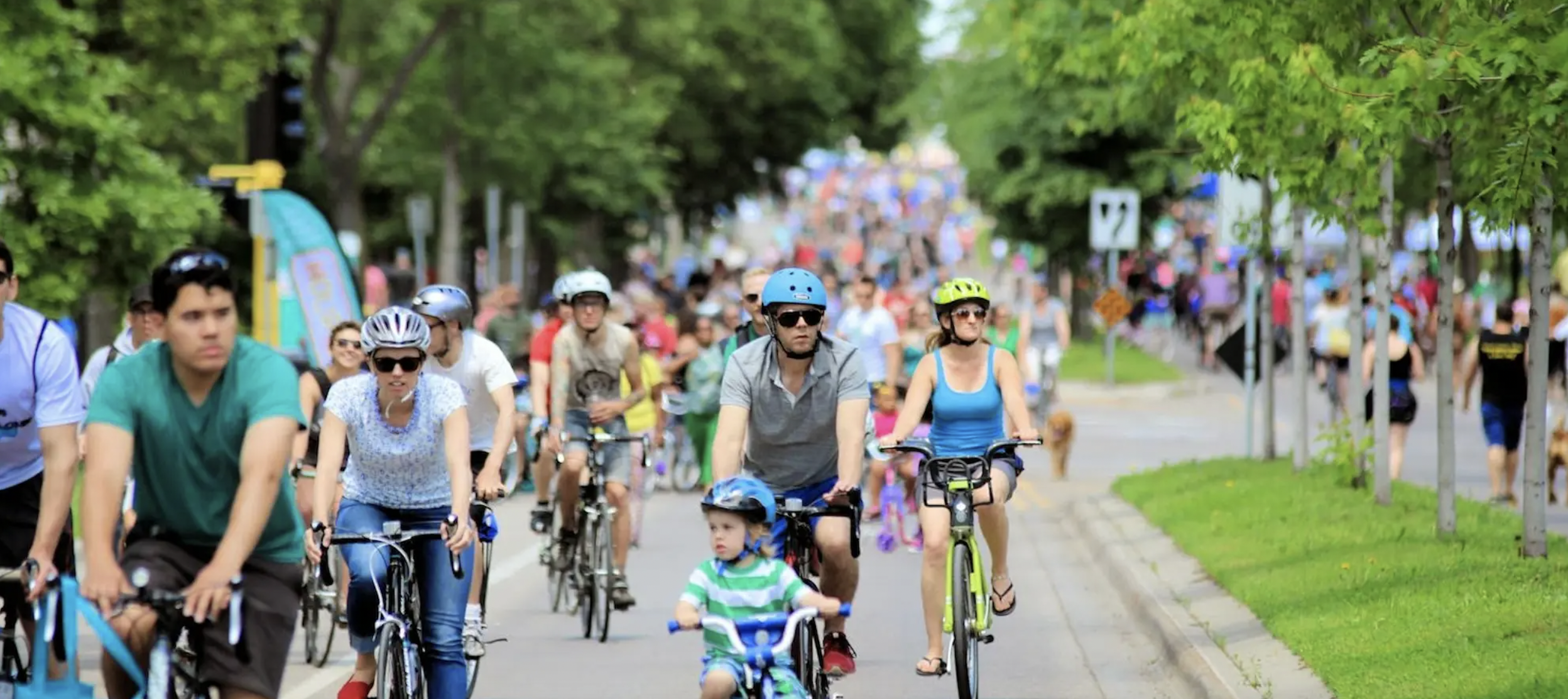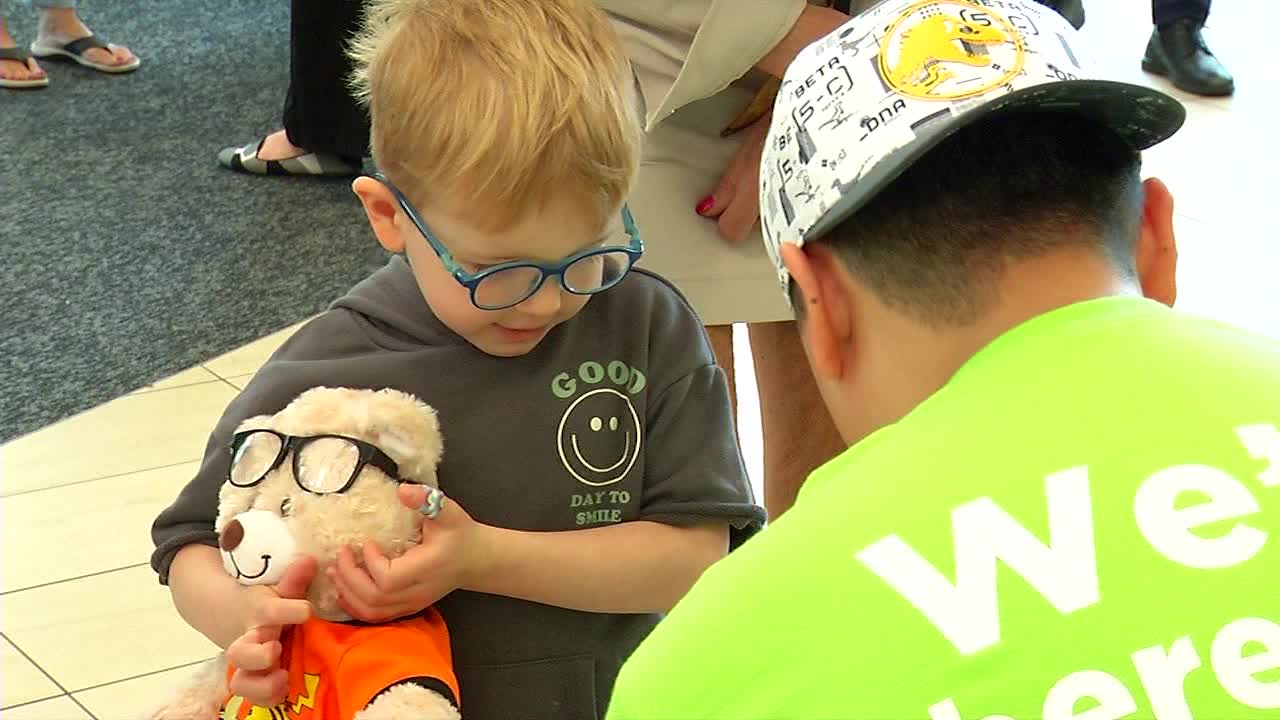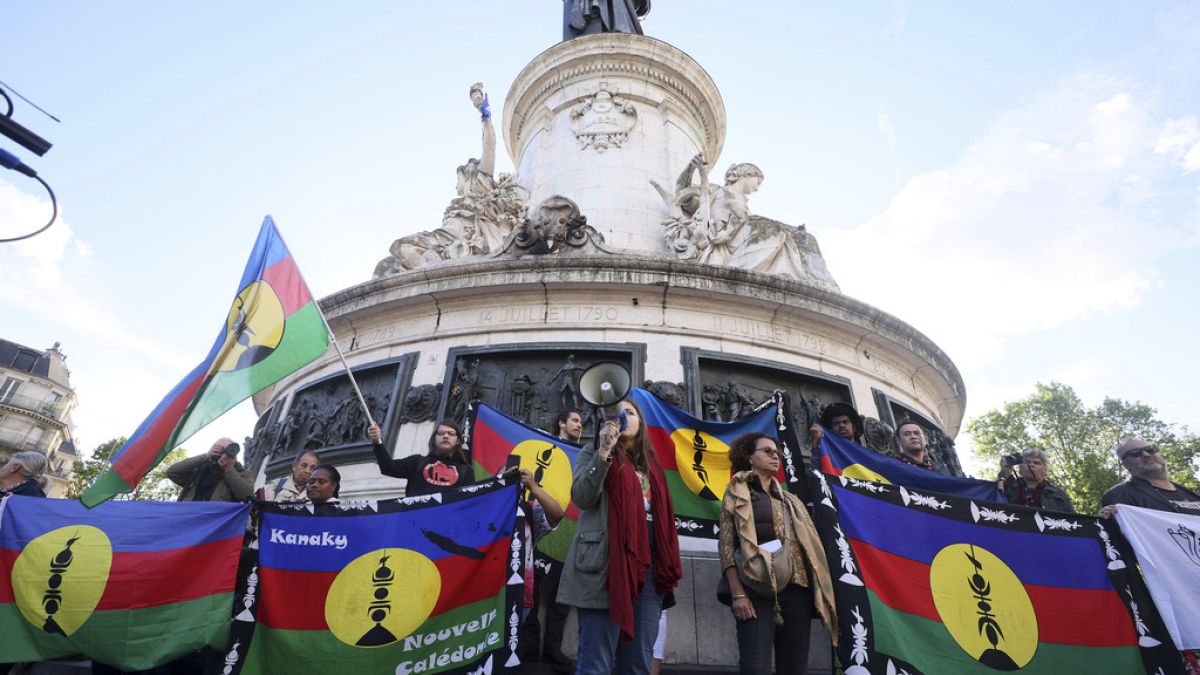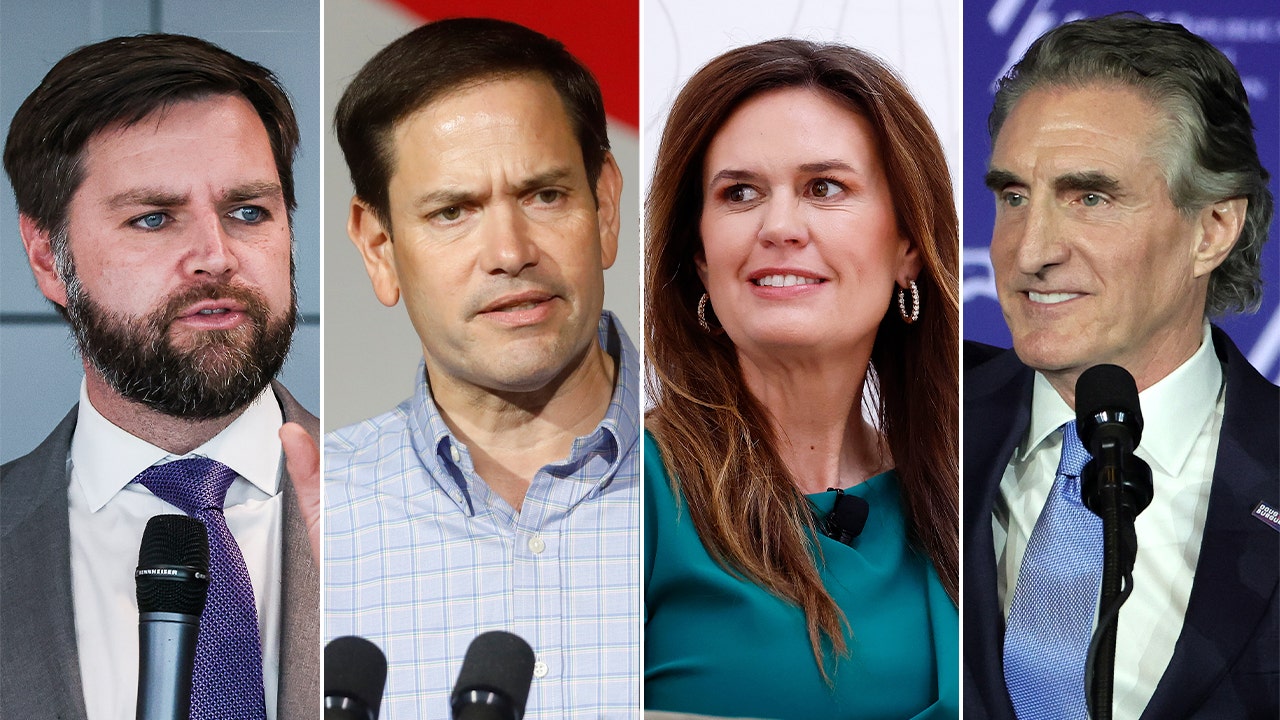Minneapolis, MN
Our Streets Isn't Just for Minneapolis Anymore – Racket

Welcome back to The Flyover, your daily digest of important, overlooked, and/or interesting Minnesota news stories.
Our Streets Minneapolis
In a small but telling move, the transportation advocacy org Our Streets Minneapolis is dropping the “Minneapolis” from its name. According to a press release, “The slight rebrand better reflects their ongoing campaign to convert an urban stretch of Interstate 94, which straddles the Twin Cities, to a multimodal boulevard.” That press release also trumpets the $1.6 million federal grant Our Streets was awarded and its part in the “Bring Back 6th” campaign to convert Olson Memorial Highway into a boulevard.
Our Streets’ work is clearly no longer limited to Minneapolis, but it’s hard not to also see the name shift as a commentary on how the city of Minneapolis estranged itself from a valuable nonprofit. The organization once put on the popular Open Streets program, but after a budget dispute between Minneapolis Public Works and Our Streets, and some very confusing messaging from the city, Minneapolis and Our Streets have parted ways. The program is still on for 2024, but given the city’s belated request for proposals and the uncertainty of how it would proceed, it seems like Open Streets is on shaky ground.
Following this incredible and largely unacknowledged fumble on the part of the Frey administration, here’s hoping Our Streets gets to work with more receptive governmental structures in the future.
The Strib Speaks for the Trees
Every so often, the biggest newspaper in Minnesota puts its resources to work to produce the kind of story that we scrappy little shoestring upstarts can only dream of. This week, the Strib went all in with this look at the Legacy Tree, a celebrated white cedar up near the Boundary Waters, its existence threatened by climate change. “We’re in such dark existential times,” says Paul Schurke of the Wintergreen Dogsled Lodge in the BWCA. “[The tree] gives us hope because it’s seen its own share of existential threats.”
The story, which covers the history of the region and speculates on its future, is beautifully illustrated with detailed maps, rich photography and immersive video, and a timeline of human history as represented in the cedar’s rings. Kudos to Jake Steinberg, who contributed story and graphics, and Anthony Soufflé, who handled photos and video.
Alas, I couldn’t resist clicking the little green comment bubble at the end of the story, where various experts had gathered to tell me that climate change was either not real or not man-made and that the tree would either be fine or that its death would be no big loss. Which reminded me that aside from investing in more stories like this, another way the Strib could improve itself its to finally discontinue its often-reprehensible comments section.
Live Where You (Used to) Work
The commercial vacancy rate in the Twin Cities is currently 22.6%, and no matter what Minneapolis Mayor Frey called for in his State of the City address today, the workers who stopped going into the office at the start of Covid are not all coming back. So what do we do with the giant glass edifices whose construction our cities did so much to encourage over the past few decades? Well, we could turn them into housing.
Today MPR News spoke with developer Chris Sherman, who believes “he can create hundreds of new homes without ever having to put a shovel in the ground.” Sherman Associates is currently converting Landmark Towers in St. Paul and Northstar Center in Minneapolis, where the developer plans to spend $185 million in the transformation of 600,000 square feet of office space into 400 units of housing. What if the city of the future was no longer a centered commercial/retail/tourist hub but was composed instead of an interrelated series of neighborhoods?
I know—cities rely on a commercial tax base to survive. But as St. Paul City Council Member Rebecca Noeker puts it, when it comes to taxes, “We know that a full bustling residential building is far, far better than a mostly vacant office building.”
More Like Denver Nug-ASS
We’ve got nothing to say about the Wolves’ vicious 106-80 trouncing of the Denver Nuggets last night that you couldn’t see with your own disbelieving eyes. So let’s just celebrate the easily celebratable Anthony Edwards, who scored 27 points last night along with two rebounds, seven assists, and two steals. “Once I found my second wind I knew there was nobody that could stop me,” the new face of the NBA told Marney Gellner of Bally Sports North after the game.
Incidentally, an older chat between Gellner and Edwards is blowing up online today, and it’s too fun not to share. In it, Edwards discusses the sports he played growing up, including baseball (he batted “straight cleanup on aisle three, come get it”) as well as hypothetical sports he would also excel in, including “tennis, swimming, la crosse—whatever you need me to play.” Gotta love the guy.

Minneapolis, MN
Minneapolis community looking to honor George Floyd hopes Wolves can lead off the court

MINNEAPOLIS — At the corner of East 38th and Chicago, the Minnesota Timberwolves are not front of mind.
The people who come here, 10 minutes or so from downtown, where the city’s NBA team is in the midst of a renaissance, don’t bring up Anthony Edwards or the unceasing comparisons of him to Michael Jordan. They don’t seem to care much about Rudy Gobert winning his fourth Defensive Player of the Year award, or Naz Reid getting his first Sixth Man of the Year award. They have come, this day — from Michigan and Oregon and Colorado and California and New York and Ghana — to see the spot where George Floyd was murdered, in front of the Cup Foods store, and how they reconcile what that means to them.
They are, all of them, quiet, contemplative, nervous. Black, White, Latino, male and female, on foot or bikes; it doesn’t matter. They don’t know where to stand or where they should walk or what they should say. Knowing what happened here, they seem not to want to trespass on the grounds.
An Asian woman has brought flowers. She is crying.
“Would you like a hug?” asks Bridgett Floyd, George Floyd’s younger sister, in town last weekend. They embrace.
East 38th and Chicago is in the heart of what people in this neighborhood call “The Free State of George Floyd,” more commonly known as George Floyd Square. At intersections surrounding the corner, raised fist sculptures patrol the blocks now rather than the police, and the Pan-African Flag of Black liberation flies high.
The handmade memorials and flowers surround the spot in the street where a former Minneapolis police officer choked the life out of Floyd, who was in handcuffs and lying on the street, by kneeling on his neck for nine minutes, on May 25, 2020, as the officer’s partners rejected urging from people watching — and, vitally, though achingly, recording on their phones — to let Floyd sit up and breathe.
Floyd’s death — the officer who killed him was convicted in 2021 of unintentional second-degree murder, third-degree murder and second-degree manslaughter and sentenced to 22 1/2 years in prison — sparked worldwide protests condemning police violence against people of color. The decentralized movement known as Black Lives Matter led marches across the country, demanding civic and political change.
For a few fleeting months afterward, the nation seemed to be at least trying to rectify some of its most egregious blind spots on race and systemic racism. Corporate America committed to addressing hiring and promotion inequities, bolstering Diversity, Equity and Inclusion departments, as did schools and universities. Cities and towns removed Confederate monuments and statues from public squares and grounds and renamed schools named for Confederate generals.
The power of the movement, though, has been manifested by the intensity of the backlash against it in the nearly four years since Floyd’s murder.
As the four-year milestone of Floyd’s murder approaches, this city and the nation seem unsure of what to do next, from the macro of the next stages of the social justice movement — and who wants, and does not want, that movement to proceed apace — to the micro of how to develop this space.
And, within that micro, does the wild success of the Timberwolves, who’ve become one of the NBA’s best teams, reaching heights they haven’t reached in two decades and who play in a sold-out arena full of well-heeled fans, mean anything? Does it have any tangible impact?
“The city wants to sit down and talk to us. But the city’s the reason Floyd’s dead,” says Eliza Wesley, the Minneapolis resident and “gatekeeper” of the Square, who patrols the grounds almost daily to ensure visitors know as much of the story of Floyd and the community as possible.
In the early days following Floyd’s murder, she gave out free masks and hand sanitizer, controlled the endless traffic flow of cars going around the small circle that intersects East 38th and Chicago and continued to fundraise and keep local food pantries running as COVID-19 raged.
(David Aldridge / The Athletic)
The local residents and Floyd’s family aren’t angry with the Wolves. They appreciated the gestures the team made after Floyd’s death, and that Karl-Anthony Towns has been here, early and often. Amid his own grief in 2020, after his mother, Jacqueline, died from COVID, Towns came here, just as Dave Chappelle and Chris Rock and others have in the years since.
But people come here, and they leave, and it’s been almost four years now, and these people in the community are still here, day after day, and they want George Floyd and his death to be honored in the way they think he should be honored. They’d like the Wolves and the other pro sports teams here to play a front-facing role, with their profile and resources.
The Wolves have their own answer to the impact question.
“My answer is yes, and I’ll tell you why,” says Tru Pettigrew, the chief diversity and inclusion officer for the Wolves and the WNBA’s Lynx.
“The unfortunate, man, the tragic murder of George Floyd was actually a catalyst to how and why our team has actually become much more intentional about being present in the community, and building relationships with the community,” Pettigrew said. “That’s how I came into the organization. After the murder, myself and so many others, across the league and across the country, in these positions of chief diversity and inclusion officers, these positions emerged at a rapid pace across the country. The Timberwolves were no different. Where we may have been a little different (was), one, we were the epicenter of so much social and racial unrest, because that’s where the murder of George Floyd took place.
“But, also, I give Ethan (Casson, the Wolves’ CEO) a lot of credit, because when he brought me in, I came in as the head of diversity and player programs. I came in on the basketball side of the business. After that first year, he and I both realized that the passion and the vision and mission in which I was there best served the organization on a more holistic level.
“Working with the players was great. But this needed to be something that permeated the whole organization, across all four franchises (including the Wolves’ G League affiliate, the Iowa Wolves, and the franchise’s 2K League team, T-Wolves Gaming). My role was evolved to chief impact officer, very intentional to impact the entire community, the culture of the entire organization, and how we showed up in communities.”
Pettigrew was hired by Gersson Rosas, the Wolves’ former president of basketball operations who is now the Knicks’ senior vice president of basketball operations. Originally, Pettigrew’s job description dovetailed with many in the community. He was tasked with building bridges between the Wolves’ players and the Minneapolis police.
“That relationship was strained,” he says now. “It was already a very fragile relationship with law enforcement and the Black community to begin with. Now, you add this, and the players were like, ‘Yo, we’re not feeling MPD.’ That was really my initial assignment.”
The team met with Minneapolis Police Chief Medaria Arradondo, Minneapolis Mayor Jacob Frey and other local officials and civic groups in the summer and fall of 2020, often via video during the worst of COVID-19. The team connected with then-Minneapolis NAACP president Leslie Redmond and Elizer Darris, the former co-executive director of the Minnesota Freedom Fund.
That doesn’t mean every relationship with every community group was great, then or now. Where there was community connection, the team tried to double down and replicate it. But where there wasn’t, the Wolves tried to listen to why “and start to resolve and reconcile those relationships,” Pettigrew said.
The club reached out to the Floyd family, many of whom lived in Houston, inviting them to a Rockets-Wolves game when the Wolves came to Houston in 2021, a week after the guilty verdicts came down. Two of Floyd’s brothers, Philonise and Rodney, and his cousin Brandon Williams came to the game. They received a game ball from the team, game-worn jerseys from Edwards and Towns and a custom team jersey with Floyd’s name on the back.
After the win in Houston, Karl-Anthony Towns, Anthony Edwards and Josh Okogie met with George Floyd’s family (who live in Houston).
They gave them the game ball from the Sacramento win, which they dedicated to Floyd and his family.@Timberwolves
(via @JonKrawczynski) pic.twitter.com/OoxkPTGewY— The Athletic (@TheAthletic) April 28, 2021
“I told them, I don’t know what I can do, but whatever I can do, let me know,” Pettigrew said. “We can commit to you as an organization, you will never have to pay for a game (in Minneapolis), because I knew basketball could serve as a welcome distraction for them. … I knew they were going through so much trauma, as a family. That brotherhood just grew and grew. Over the years, they said, once the cameras went away, and the lights turned down, they said, ‘Y’all were the only organization that still rock with us. Everybody else was just doing it for the photo ops.’”
Pettigrew ticks off, with pride, the off-court honors the team has received in the succeeding years.
The Wolves won the NBA’s Inclusion Leadership Award this year, given out annually by the league to recognize “an organization’s history of and commitment to inclusion as a key business strategy, evaluating the team’s full slate of inclusion programming.”
The organization got the award for its “Pack the Vote” initiative, which focused on providing nonpartisan voter education, increasing voter registration and civic engagement. That dovetailed with the Wolves’ role in the “Restore the Vote” statewide initiative, a program that restored the voting rights of 50,000 formerly incarcerated citizens in the state. The bill passed the Minnesota Legislature early last year and was signed by Gov. Tim Walz in March 2023.
#RestoreTheVote was signed into law today! Huge congrats to the 50K+ Minnesotans who are having their right to vote restored! And ❤ to all who put in the work to help make our state better. @RTVMN
— Karl-Anthony Towns (@KarlTowns) March 3, 2023
And, earlier this month, Towns won the NBA’s Kareem Abdul-Jabbar Social Justice Champion Award, named after the Hall of Fame center who has spent much of his life off the court raising awareness for social justice ideals and movements worldwide. Towns represented the Wolves as they promoted Restore the Vote with local civic organizations.
All those honors were well-earned. But they don’t feed the vision of what people on the Square want to happen with this space. As the days, and then years, wore on, the crowds coming to honor Floyd diminished in size. But they didn’t stop. They’ve never stopped.
“We had a group come here from Antarctica,” says Angela Harrelson, Floyd’s aunt, saying a group received dispensation to leave their work on the remote continent to come to Minnesota.
The community wants any development of the Square to come from their hands and minds, not from well-meaning bureaucrats and planners who don’t live here, and don’t know what Floyd’s life and struggles were like. Floyd — everyone, including family members, calls him “Floyd,” not “George” — wrestled with addictions. Ideally, a youth center focusing on job creation and substance abuse rehabilitation, along with a museum/memorial that would house the hundreds of thousands of artifacts left by tourists, would be the centerpieces of a reimagined Square.
And folks out here figure the Wolves, with their individual and group largesse, could help with that.
It has been hard for Bridgett Floyd, who lives in North Carolina, to continue to return to the place where her brother was slain. She was here with other family in the days and weeks after the murder and during the police officers’ 2021 trials. But this was the first time in a couple of years that she’s been back. There is so much pain and, even with all the convictions, unresolved anger.
She feels a calling to keep his memory, and the causes raised by his death, in the public’s consciousness. She hands out flowers she bought to visitors.
“I knew Floyd has been here, and there’s something I have to do here,” she said. “So I’m walking in it.”
Of course, a sports team doesn’t have budgetary power or zoning authority. It can’t conduct environmental studies or call public meetings. It’s but a symbol of a city, and there’s only so much it can do that isn’t performative.
Only a handful of players remain from that 2020 team. Pettigrew is leaving the organization at the end of the playoffs. It’s sports; people come, and they go. And the Wolves are in a knockdown, drag-out fight with the Denver Nuggets that will crescendo with a Game 7 Sunday night in Denver. All their attention and focus are on trying to defeat the world’s best player and the NBA’s defending champions.
When the playoff run ends, though, this community will still be here, waiting for someone to listen to them, work with them and see their dreams come to fruition — dreams no more audacious than the ones George Floyd had for his daughter, Gianna.
“Daddy changed the world,” she said in 2020, on the shoulders of her dad’s friend, former NBA player Stephen Jackson, and she’s right. George Floyd changed the world. He still does, even when people show up here from so far away and can’t explain why they’ve come.
(Top photo of the George Floyd memorial at East 38th and Chicago: David Aldridge / The Athletic)
Minneapolis, MN
Minnesota Democrats announce deal on minimum pay for Uber and Lyft drivers

Gov. Tim Walz and DFL leaders of the House and Senate say they’ve struck a deal on minimum pay standards for Uber and Lyft drivers that will prevent the companies from making good on a pledge to leave parts of the state on July 1.
The agreement, announced at a Saturday evening news conference, preempts a recent ordinance from the Minneapolis City Council on pay standards and sets minimum rates statewide at $1.28 per mile and 31 cents per minute.
“No one else has been able to do this in the country,” Walz said in the hastily-scheduled news conference. “Minnesotans will be able to continue to use these services if they see fit.”
Democrats said the companies are on board with the deal, but Uber’s lobbyist did not immediately respond to a request for comment.
Sen. Omar Fateh, DFL-Minneapolis, the lead sponsor of the bill, said after the announcement that it’s been “two long years” of work on the proposal.
Fateh, who had been missing from legislative action on Saturday, said he spent the day in negotiations with staff and DFL leaders to get the bill in the shape he wanted it to pass this session. The Senate, which is controlled by Democrats by a single vote, was in recess for 11 hours during the negotiations and all other work came to a standstill.
Legislators have a Sunday night deadline to pass legislation before they’re required to adjourn.
“Sometimes legislation like this takes a long time to negotiate,” Fateh said. “We spent the day, we got it right.”
The Minneapolis ordinance passed earlier this year would require a rate of $1.41 a mile and 51 cents a minute, or at least $5 minimum per ride. Those rates prompted Uber and Lyft to say they planned to leave the city as soon as the ordinance took effect.
Council members delayed implementation of their new rates from May 1 to July 1, giving legislators in St. Paul more time to negotiate a deal.
A study ordered by the state Department of Labor and Industry estimated that, for drivers in the Twin Cities metro area, it would take 89 cents per mile and 49 cents per minute to approximate the minimum wage, or $1.21 per mile to provide drivers with more benefits.
The range was higher for drivers in greater Minnesota, with the study’s suggested per-mile rate ranging from $1.16 to $1.40 because drivers tend to travel farther between fares.
Some City Council members weren’t happy with every aspect of the deal, including council Vice President Aisha Chughtai, who posted to X Saturday that “preemption is bad. Period.”
“Any and all attempts to undermine local control are bad,” she continued. “It’s a Republican and corporate tactic used around the country. Watching our @GovTimWalz cave to multibillion dollar corporations in insisting on preempting Minneapolis is gross.”
The announcement comes with a little more than 24 hours left to pass bills during the legislative session. Democrats wouldn’t comment on the status of other outstanding legislation, including a sports betting bill and a statewide package of infrastructure projects.
Responding to the announcement, Republican legislative leaders said they continue to be cut out of the negotiations.
“We’ve been waiting around for ten-and-a-half hours in the Senate,” Senate Minority Leader Mark Johnson, R-East Grand Forks, said late Saturday. “Sen. Fateh and others were really holding up the work of the state and keeping Republicans in the dark on what’s going on.”
Johnson said they had to attend the press conference to learn the details of the deal on Uber and Lyft. He said bills that need bipartisan support are “jeopardized” in the final hours of session without collaboration.
Democratic leaders would not respond to questions about whether a special session would be needed to complete all their work.
Staff writer Josie Albertson-Grove contributed to this report.
Minneapolis, MN
Hennepin Healthcare hosts 'Teddy Bear Clinic' as part of Doors Open Minneapolis weekend

46 different buildings across Minneapolis have opened their doors to the public this weekend.
It’s part of Doors Open Minneapolis — an initiative by the city to get people interested in local tourism and also provide an educational experience.
Hundreds of kids brought their favorite stuffed animals to the “Teddy Bear Clinic” at Hennepin Healthcare as part of this weekend’s events.
They worked with real doctors, medics and nurses to get “Teddy X-rays,” splint some broken limbs, stitch any loose seems and even see the inside of an ambulance in an effort to get kids more comfortable with health care.
Minneapolis Mayor Jacob Frey was also there with his daughter to educate her on health care.
Doctors say experiences such as these can really make a positive impact on little ones.
“This allows kids to be the parent and to have some autonomy, make some choices for their bear and see things in a really friendly way,” said Dr. Ashley Strobel, a pediatric emergency physician. “We once had like an 11-year-old girl come through maybe the first year of the Teddy Bear Clinic, she came back as a repeat customer… and she had been through our resuscitation room in the meantime as a patient and she said it made that experience less scary for her.”
If you didn’t make it this year, organizers say they’re hoping for another one next year.
-

 World1 week ago
World1 week agoIndia Lok Sabha election 2024 Phase 4: Who votes and what’s at stake?
-

 Politics1 week ago
Politics1 week agoFox News Politics: No calm after the Stormy
-

 World1 week ago
World1 week agoUkraine’s Zelenskyy fires head of state guard over assassination plot
-

 Politics1 week ago
Politics1 week agoUS Border Patrol agents come under fire in 'use of force' while working southern border
-

 Politics1 week ago
Politics1 week agoTales from the trail: The blue states Trump eyes to turn red in November
-

 News7 days ago
News7 days agoSkeletal remains found almost 40 years ago identified as woman who disappeared in 1968
-

 World1 week ago
World1 week agoBorrell: Spain, Ireland and others could recognise Palestine on 21 May
-

 World1 week ago
World1 week agoCatalans vote in crucial regional election for the separatist movement















